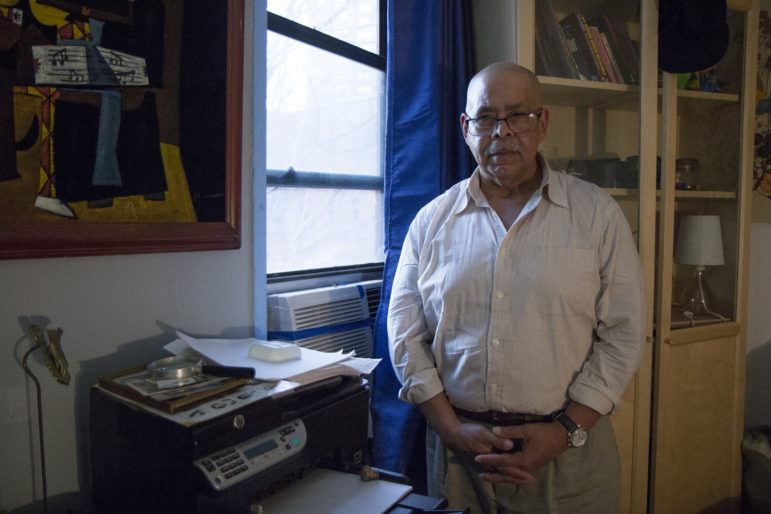
Nomin Ujiyediin
William Gonzalez, whose life before his sentence was punctuated by arrests, gang violence and drug addiction, credits the Family Reentry Pilot Program with his success in staying calm and clean after his release.
William Gonzalez, 63, got a second chance. After being convicted of attempted murder in 1987, he spent nearly 30 years in various state prisons before he was released on parole in March of this year. Unlike many former inmates, he knew he could turn to his family for a place to stay.
The NYCHA Family Reentry Pilot Program, implemented by the city in 2014, allowed Gonzalez to return to his mother’s apartment in the Vladeck Houses on the Lower East Side, where he grew up. NYCHA policy typically excludes families whose members have been convicted of crimes for periods ranging from three to six years. But the pilot program is not only an opportunity for former inmates to get back on their feet, it is also a break from the typical exclusionary policies of public housing.
Not everyone who has been incarcerated can participate. People who are on the sex offender registry and those convicted of producing methamphetamines in public housing are not eligible. People with substance abuse issues or who have been evicted from public housing for drug-related offenses cannot apply for the program unless they demonstrate they are undergoing rehabilitation. Otherwise, anyone who is over the age of 16 and has been released from a correctional facility in the past three years is eligible to return to most NYCHA developments, but not Section 8 housing.
Federal law requires public housing agencies to terminate the tenancy of people involved in drug-related activity or criminal activity that endangers other tenants. And it requires that registered sex offenders, suspected drug users and those convicted of making methamphetamines are excluded from applying for housing. According to advocacy organizations, NYCHA has in the past taken the policy further by also excluding applicants based on arrests, and not just convictions. Nonprofit organizations and lawmakers have been critical of these policies for years, and have advocated for leniency, arguing that they displace many disadvantaged New Yorkers.
The Family Reentry Pilot Program is a way back into NYCHA housing. After an application process and interviews, Gonzalez was accepted to the program, and moved into his mother’s apartment in May. He is permitted to stay for up to two years, after which he can petition to remain in the apartment or find other housing.
Gonzalez, whose life before his sentence was punctuated by arrests, gang violence and drug addiction, credits the Family Reentry Pilot Program with his success in staying calm and clean after his release. “If I wouldn’t have had this, a place to live, who knows? I might have went off the edge,” he says. His dedication to his mother, now bedridden and requiring daily care, has motivated him to look for jobs so he can continue to take care of her, and can save up money to move out of public housing.
The Fortune Society, a nonprofit organization focused on prisoner reentry, helped Gonzalez apply for the program while he was still incarcerated. Other nonprofits, like the Vera Institute and the Exodus Transitional Community, also help prisoners.
Evidence of success
Margaret diZerega, a spokesperson for the Vera Institute, has observed the success of the pilot. “So far, everyone who has gone through the program has stayed out of trouble,” she said. In two years, none of the 85 participants have been convicted of a new crime. And roughly half have maintained or found new jobs, according to a Vera Institute report released in November of this year.
On November 15, the Vera Institute held a “Public Housing Access” meeting in Trinity Church in downtown Manhattan to address the results of the program. Representatives from the State Department of Corrections and Community Supervision attended, along with managers of other public-housing groups from other major cities across the country.
Testimonials from recently incarcerated men who had been accepted into the program were played and members of the Vera Institute announced that the program would continue—and, because of its success in New York, aspects of it would be replicated in other cities.
Priscilla Lopez, a mentor at the Exodus Transitional Community in New York City, says the guidance offered by the NYCHA Family Reentry Pilot Program has made a huge difference for the people she’s worked with.
“With the partnership with different organizations, clients can go and get services, they’re not just applying and being left on their own,” she says.
Lopez recalls an Exodus client who was able to access family support, medical treatments and other benefits because of the program.
“He was able to get treatment from home and also ask for help from people that he knew,” she said. “He was a lot less stressed thanks to that.”
Carlos Aulet, an Exodus client, was released earlier this year after serving 23 years in prison for a murder conviction. He is currently applying to the program and staying with a relative. If it wasn’t for that, he wouldn’t have access to steady housing at all, he says.
If Aulet’s application goes through, he’ll be able to live in his native borough of Manhattan.
“If I go back to where I grew up, I know how to get around from there. If I ended up in Queens, where I don’t know how to get around, it would be a lot harder for me,” he says.
And if he knows where he’s living for the next few years, he has time to think about starting a personal training business.
“Anytime someone can remove that burden from you, it’s always going to be beneficial,” he says. “It gives you a little bit of liberty, and it lets me focus on other things.”
Gregory Cianca, the care manager at Fortune Society, says he has seen significant improvement among parolees in the program. “It’s crucial, you’re put in an environment that’s nurturing,” he says.
Parolees usually face a number of obstacles, like limited access to affordable housing. Many of them can’t get jobs that pay well enough to afford market-rate rentals, and often they lack the support of family members and friends when released. Cianca doesn’t think the pilot program will completely negate these limitations, but he thinks it increases the number of options available for parolees.
“If it weren’t for this, a lot of them would be in three-quarter houses or shelters and those can be really bad,” Cianca says.
William Gonzalez agrees. “In a situation like this, there’s reinforcement to do right because I’m surrounded by good people. If I was in a shelter, I would be surrounded by very negative stuff,” he says.
A start, but not a finish
“We’ve seen early successes with NYCHA’s Family Reentry Program and we are committed to working with our partners to identify ways the program can be expanded and sustained in the future,” Zodet Negron, a spokesperson for NYCHA, tells City Limits.
Runa Rajagopal, the managing director of civil action practice at the Bronx Defenders, said the program is a good start. But it might not be enough. “From our perspective, it’s a great supplemental option for folks who are returning,” she says. “It creates a temporary right, but not a permanent right.”
She hopes the program will start a conversation about how NYCHA can address the instability of parolees and other former inmates. She hopes the agency will eventually reconsider its exclusion policies and work with residents who have been convicted of crimes, instead of removing them from leases. Bronx Defenders is planning to hire someone next month who will work on providing more resources for recently released parolees.
“We recognize that it’s all important and we have to think in the short term about being advocates,” she says. “And in the long term, how do we create pipelines and access for our clients?”
That access could make a huge difference for people like Gonzalez. Above all, he says, He doesn’t want to return to prison, where another long sentence could mean dying behind bars. And he recognizes that a stable living situation has been integral to his well-being, especially because he is currently unemployed and receives most of his income in the form of welfare.
“The reentry program doesn’t just mean a place to sleep. It actually allows you to live as a human being again. It allows your family to teach you as a human being and to look at you in that way,” he says.


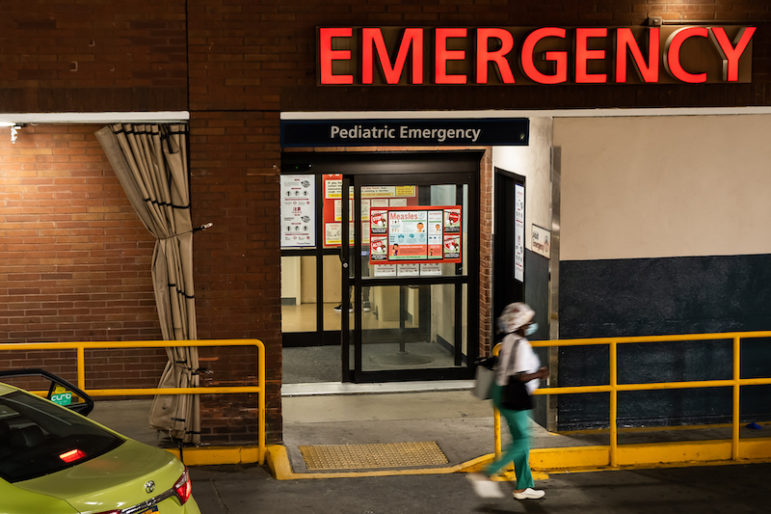
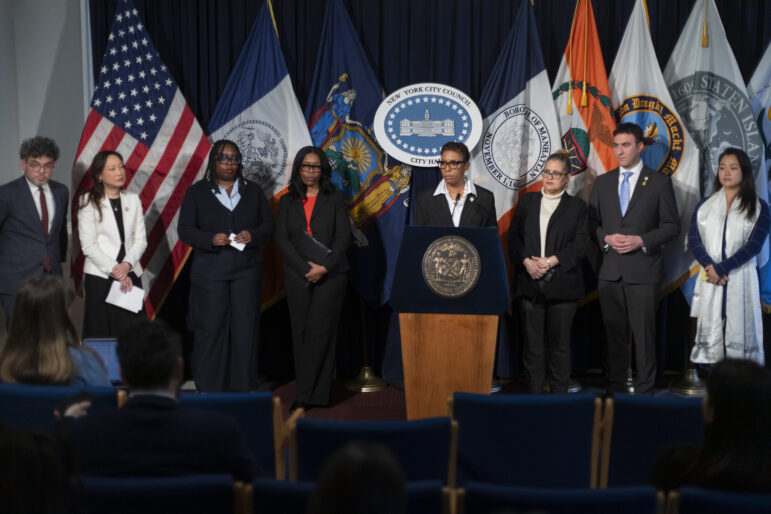
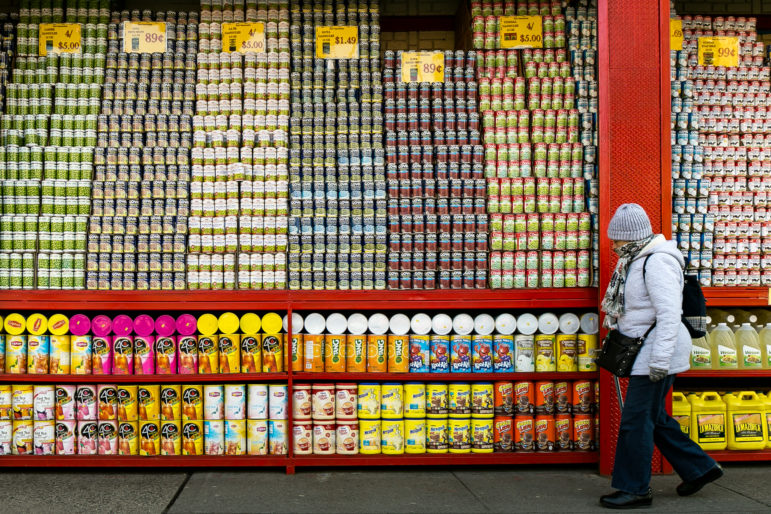
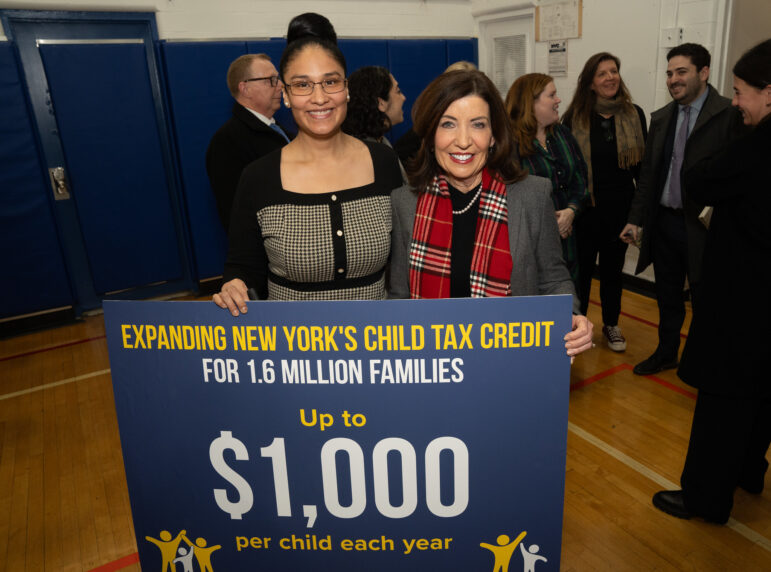


3 thoughts on “NYCHA Pilot Sees Success Allowing Residents to Return After Prison”
i think this is excellent for many young men of color because they are excluded from there family homes because of convictions they solely settle for because they dont have choices against the judicial system. Many young men who have been involved in these so call raids that are ripping families apart by the federal system come from housing and there families are being excluded because of this situation. Where will our children return to where will there families go.
I think this is a perfect program and I would like to sign up for the program.
My name is DIANE SMALLSI live in Queensbridge Houses I would like to join the program my address is 40-12 12th st.apt. 4e L I. C. N. Y. 11101 Thank You.
I think this is a perfect program and I would like to sign up for the program.
My name is Diane Smalls I live at Queensbridge Houese my address is 40-12 12th st. apt.4e
L. I. C. N.Y.11101 Thank You